The healthcare industry has seen a seismic shift in recent years, driven largely by groundbreaking advancements in biotechnology. These innovations are not just improving patient outcomes but are also revolutionizing how diseases are diagnosed, treated, and even prevented. In this article, we delve into the most significant biotech innovations and their profound impact on healthcare.
What Is Biotechnology?
Biotechnology, at its core, involves using biological systems, organisms, or derivatives to develop products and technologies that improve human life. In healthcare, this means leveraging genetics, molecular biology, and cellular processes to drive medical advancements.
From the discovery of antibiotics to modern gene editing technologies, biotechnology’s journey in healthcare has been remarkable. Recent developments like CRISPR and mRNA vaccines showcase their potential to address complex medical challenges.
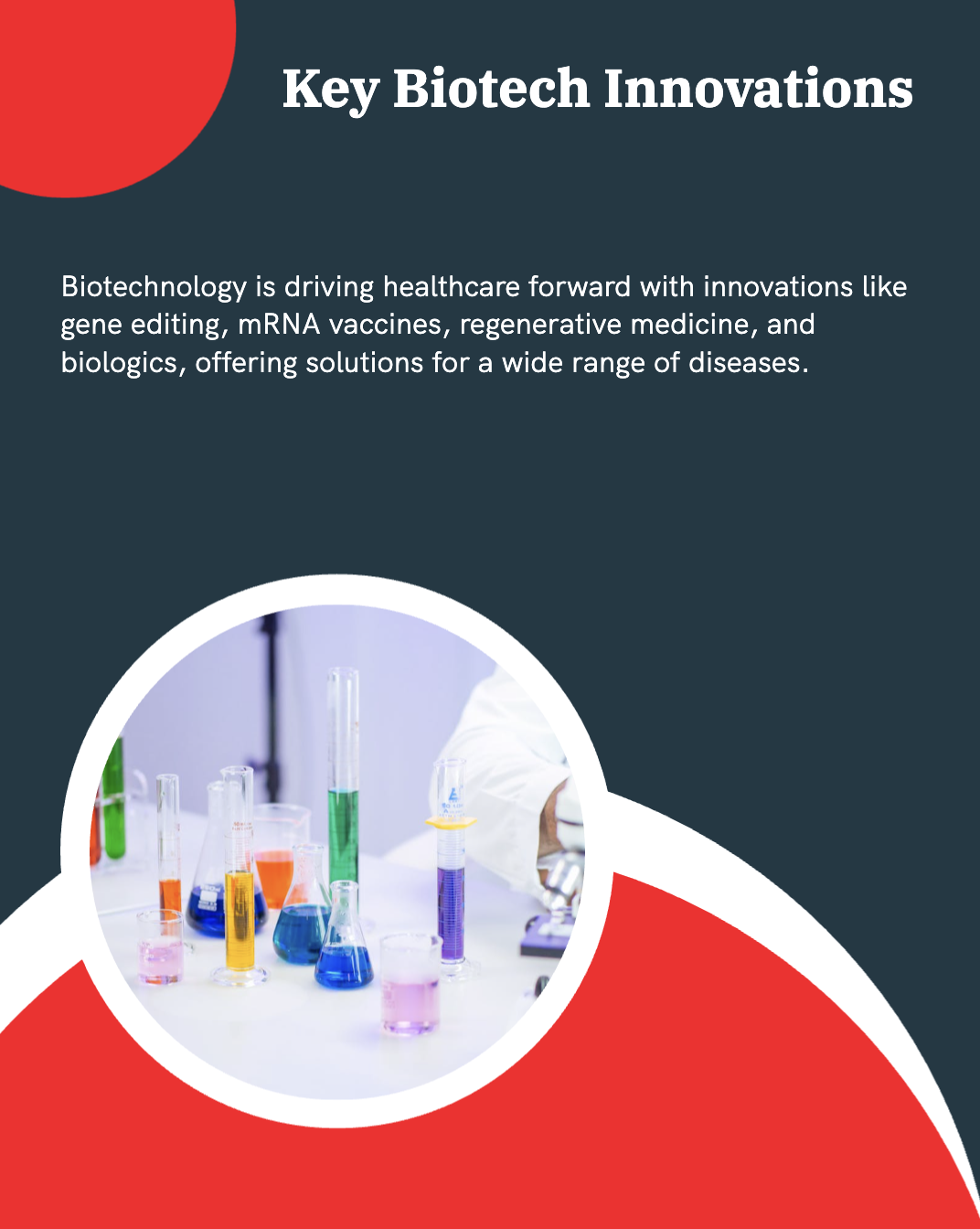
Gene Editing Technologies
Gene editing, especially CRISPR-Cas9, is a game-changer in the medical field. This technology allows precise modifications to DNA, enabling the treatment of genetic disorders such as cystic fibrosis, sickle cell anemia, and muscular dystrophy.
mRNA Vaccine Development
The success of mRNA vaccines during the COVID-19 pandemic demonstrated their efficacy and scalability. This platform is now being explored for other diseases like influenza and cancer.
Regenerative Medicine
Stem cell therapy and tissue engineering are at the forefront of regenerative medicine. These innovations offer solutions for organ repair and replacement, reducing dependency on donor organs.
Biologics and Biosimilars
Biologics, complex drugs derived from living organisms, are transforming chronic disease management. Biosimilars, their cost-effective counterparts, are expanding access to these therapies.
Liquid Biopsies
Liquid biopsies are non-invasive tests that detect cancer and other conditions through biomarkers in the blood. This technology enables earlier detection, improving survival rates.
Wearable Biotech Devices
Wearable devices equipped with biosensors monitor vital signs and detect abnormalities in real-time. These tools empower patients to take proactive steps toward their health.
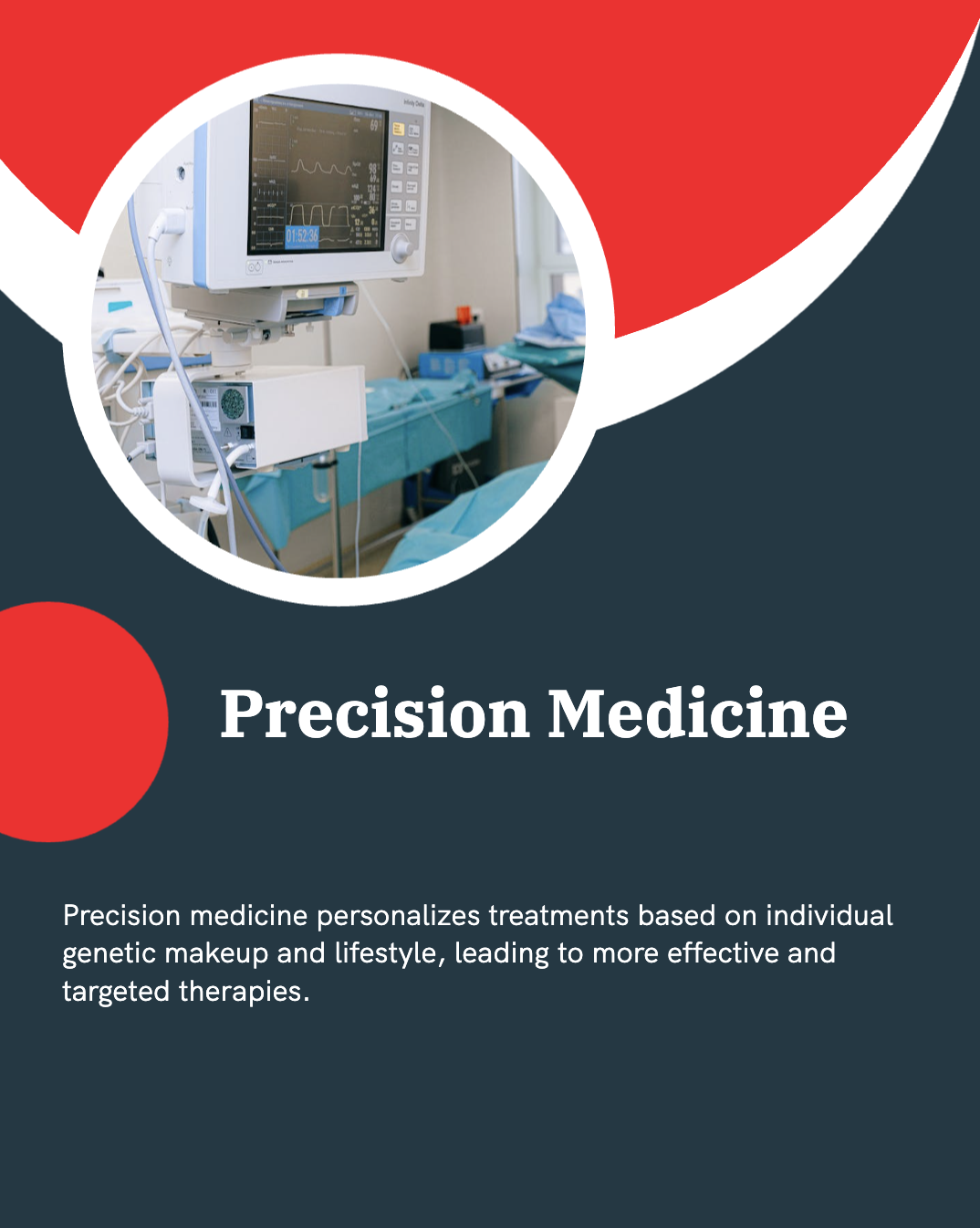
What Is Precision Medicine?
Precision medicine tailors treatments based on an individual’s genetic makeup, lifestyle, and environment. By moving away from a one-size-fits-all approach, this method ensures better outcomes.
Pharmacogenomics
Pharmacogenomics studies how genes affect drug response. This field helps in creating customized drug therapies, minimizing side effects, and maximizing efficacy.
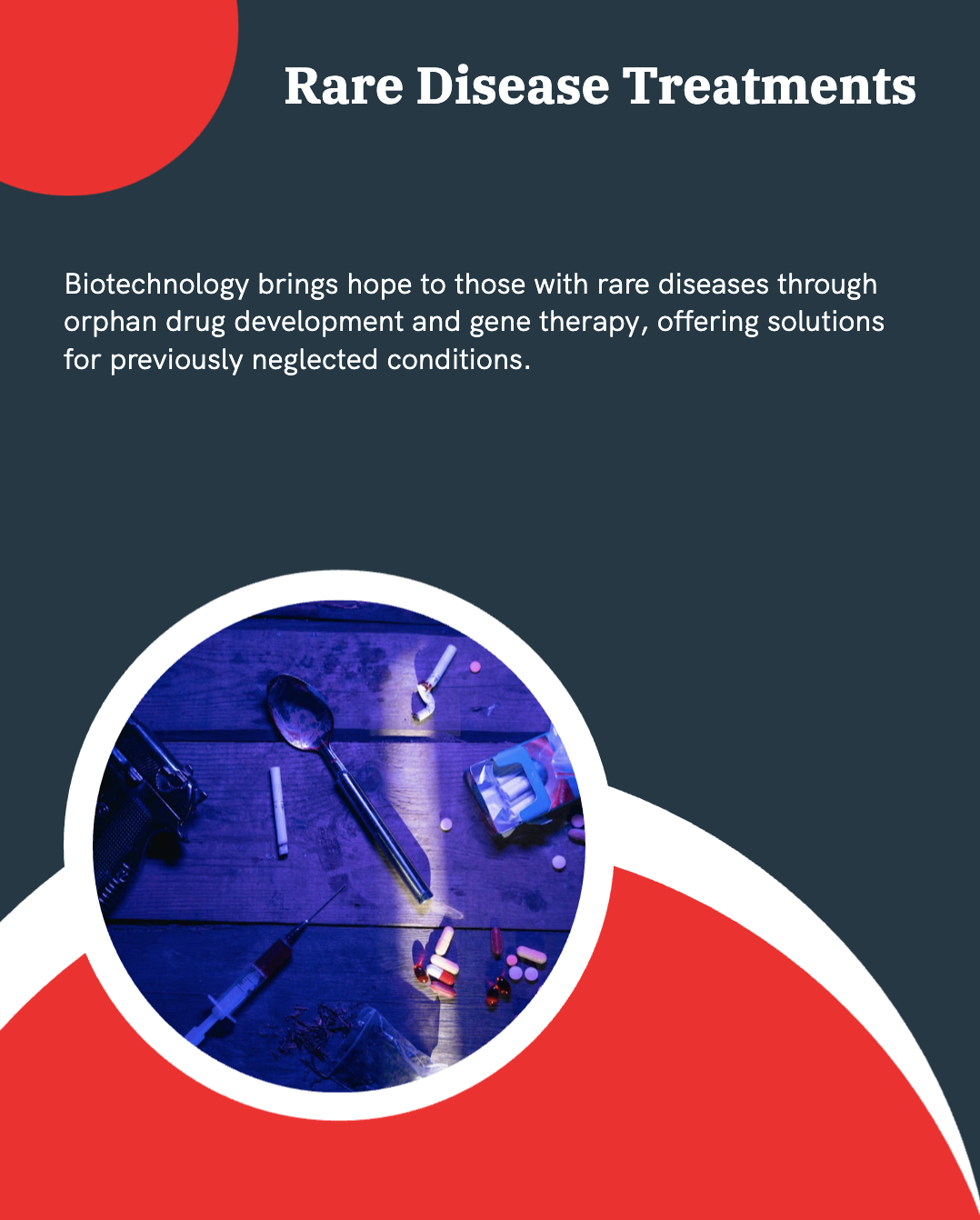
Orphan Drugs
Biotech companies are developing orphan drugs to treat rare diseases that were previously neglected due to limited commercial viability. These treatments bring hope to millions worldwide.
Gene Therapy for Rare Disorders
Gene therapy’s potential to correct genetic abnormalities offers a lifeline for patients with rare, inherited conditions.
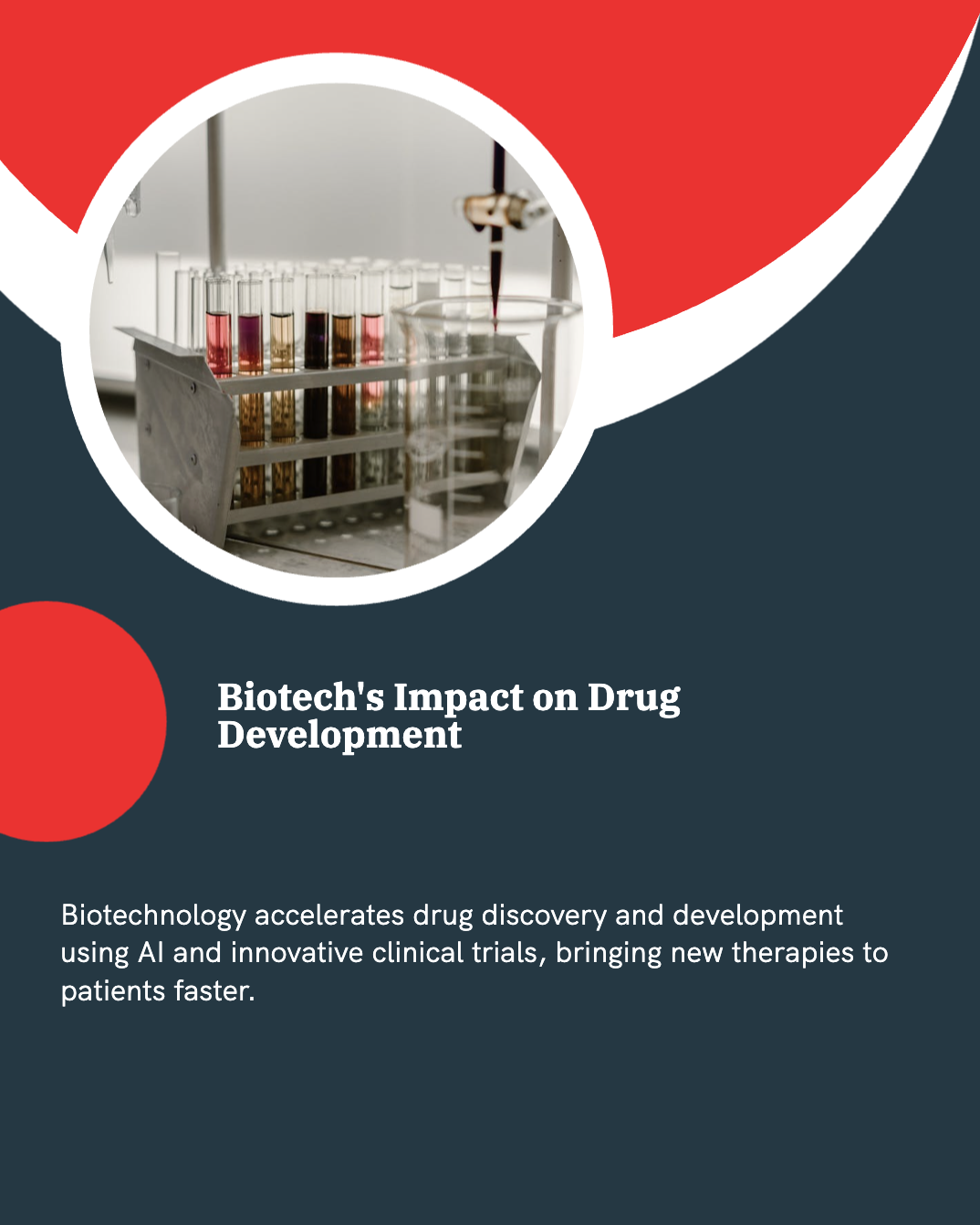
Accelerating Drug Discovery
Biotechnology uses AI and machine learning to streamline drug discovery. These technologies predict molecule behavior, reducing time and costs in developing new drugs.
Clinical Study Innovations
Adaptive clinical studies and digital biomarkers are revolutionizing how drugs are tested. These methods ensure faster and more reliable results.
Cost and Accessibility
Despite its benefits, biotech solutions often come with high price tags. Ensuring global accessibility remains a pressing issue.
Ethical Concerns
Gene editing and cloning raise ethical questions about how far humanity should go in altering life. Regulations and public discourse are essential to address these concerns.
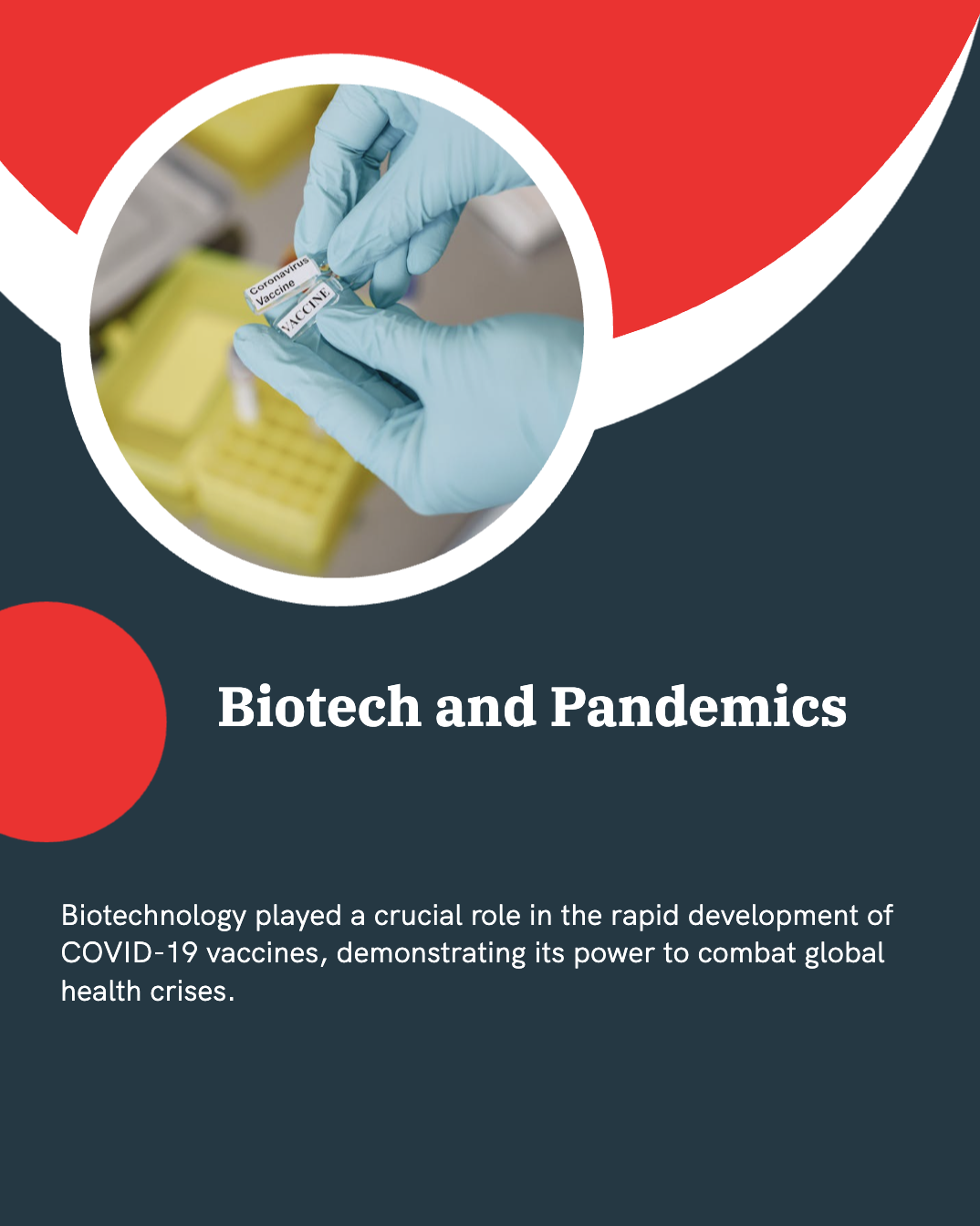
Rapid Vaccine Development
The swift creation of COVID-19 vaccines highlighted biotechnology’s role in combating global health crises. Future pandemics will likely benefit from even faster responses.
Global Collaboration
Biotechnology fosters international cooperation, as seen in the global effort to distribute vaccines and share genomic data.
Integration with AI and Big Data
The convergence of biotechnology with AI and big data is creating predictive models for disease outbreaks, treatment outcomes, and more.
Expanding Biotech Startups
The surge in biotech startups ensures a steady stream of innovations. These agile companies are driving progress in areas that traditional pharma often overlooks.
Sustainability in Biotech
Green biotechnology is emerging as a way to make healthcare solutions more sustainable, focusing on reducing waste and utilizing renewable resources.
Biotechnology is undeniably transforming the healthcare landscape. From personalized medicine to advanced drug discovery, these innovations are setting new standards in medical care. As technology continues to evolve, its integration into healthcare promises a future of improved accessibility, efficiency, and outcomes.
Biotechnology plays a pivotal role in advancing diagnostics, treatments, and prevention methods by leveraging biological systems and processes.
Precision medicine tailors treatments to individual genetic profiles, whereas traditional medicine often relies on standardized approaches.
Biologics are complex drugs made from living organisms that treat chronic and severe conditions effectively, offering alternatives to conventional drugs.
Biotechnology enables the development of orphan drugs and gene therapies, providing solutions for conditions that previously lacked effective treatments.
Personalized medicine leverages biotechnology to develop targeted treatments, including cancer vaccines, that cater to individual patient profiles, improving efficacy and minimizing side effects.
Advances in biotechnology have led to the use of biologics and cell therapies to modulate immune responses, offering new treatment options for autoimmune diseases.
Ethical issues include gene editing boundaries, cloning, and ensuring equitable access to advanced healthcare technologies.
 27.01.2025
27.01.2025